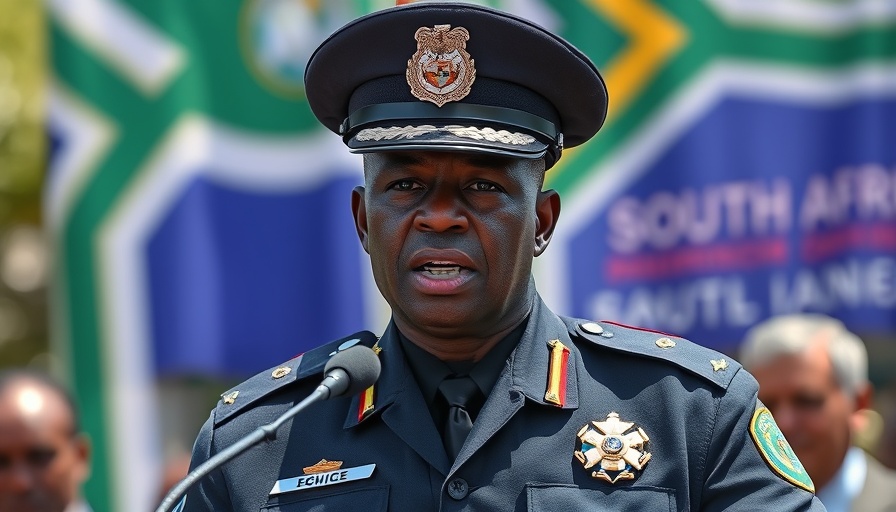
Introduction: The Tension in South African Policing
The ongoing battle between SAPS Deputy National Commissioner for Crime Detection, Lieutenant General Shadrack Sibiya, and National Police Commissioner, General Fannie Masemola, has captivated the attention of the South African public. With Sibiya set to challenge Masemola’s directive that he remain on special leave pending an investigation amidst corruption and misconduct allegations, the ramifications of this legal confrontation extend beyond the individual case, raising questions about accountability and governance within the South African political landscape.
Overview of the Allegations
The allegations against Sibiya can be traced back to a report by KwaZulu-Natal top cop, Lieutenant General Nhlanhla Mkhwanazi, alleging involvement in corruption and misconduct within the police force. This has been a significant development amid ongoing corruption investigations that have plagued the South African Police Service (SAPS). As Sibiya argues his case before the Gauteng High Court, he contends that the directive to stay at home not only breaches his employment contract but also operates on untested allegations.
The Broader Implications for SAPS and Governance
This case is part of a broader narrative surrounding state capture and the need for police reform in South Africa. Mkhwanazi’s allegations have stirred concern within the ranks of SAPS and have drawn attention to the relationship between police oversight and political power dynamics. The Council for the Advancement of the South African Constitution (Casac) has acknowledged the necessity for transparency and accountability as the commission investigates corruption allegations that extend to high-ranking officials, including Police Minister Senzo Mchunu. These dynamics create a troubling picture of governance where the integrity of law enforcement can be questioned.
Flexible Nature of Law Enforcement Protocols
Sibiya's claims about the legitimacy of Masemola's decision to place him on leave based on unproven allegations open the door to critical discussions regarding the protocols that govern law enforcement actions in South Africa. Such decisions underscore the delicate balance law enforcement must maintain between acting decisively against alleged corruption while ensuring due process and protecting the rights of individuals under investigation.
Impact of Corruption Investigations on Public Trust
The ongoing scandal has repercussions for public trust in the police and government institutions. Sibiya himself expressed concern regarding the “kangaroo” nature of investigations that potentially compromise the legitimacy of procedures meant to uphold justice. The public’s perception of police integrity is paramount, and unsubstantiated leave orders can erode the confidence necessary for effective policing and civic engagement.
Future Perspectives: The Need for Comprehensive Police Reform
The upcoming court case is likely to highlight the need for comprehensive police reform in South Africa. As Sibiya prepares to answer to the allegations against him, there is a simultaneous call for policy reform that not only addresses misconduct within SAPS but also considers transparency and accountability mechanisms that the public rightfully demands. Such reforms are vital to restoring faith in law enforcement agencies.
Conclusion: A Crossroads for South African Policing
As Lieutenant General Sibiya gears up to challenge the leave order in court, the implications of this legal battle resonate beyond his individual case. It represents a broader struggle against corruption within South African politics, a challenge compounded by ongoing debates about governance and accountability in law enforcement. The public must remain engaged as the proceedings unfold, underscoring the importance of integrity within the police force amid a backdrop of allegations and malfeasance.
Now is a crucial moment for South African citizens to advocate for reforms that ensure accountability, transparency, and integrity in policing. With the complexities of our political system at play, the outcome of Sibiya’s legal battle may serve as an important catalyst for change.
 Add Row
Add Row  Add
Add 




Write A Comment